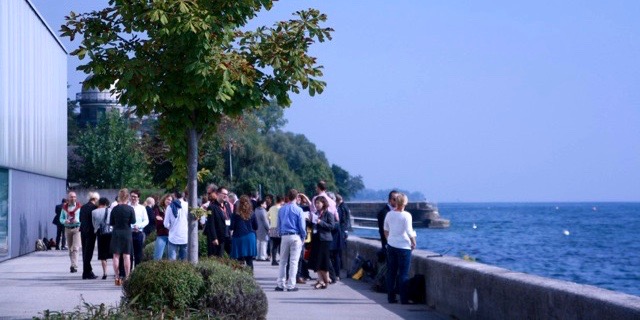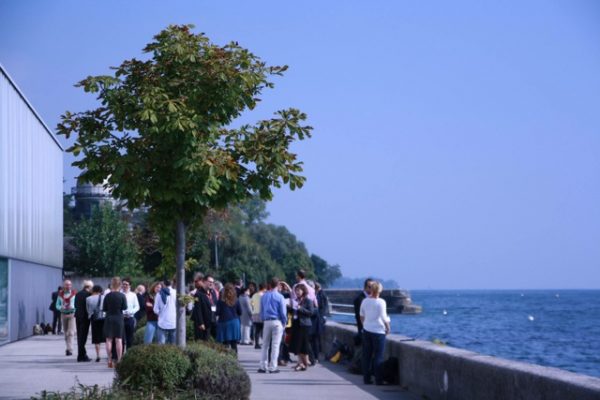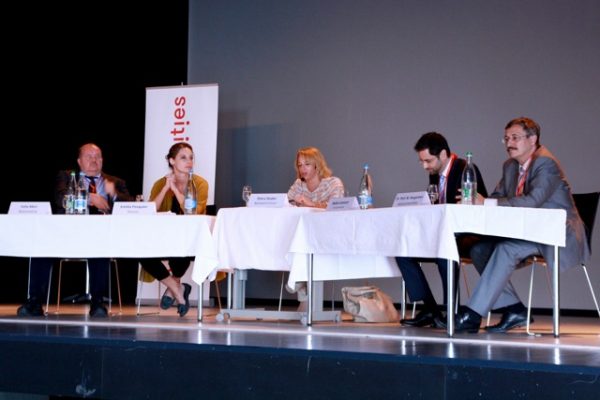PlanetS at ScienceComm 16

This year this important scientific communication event in Switzerland was held in Grandson, where 200 people gathered in an idyllic setting at the edge of Lake Neuchatel. ScienceComm 2016 was the fifth edition of a congress that takes more breadth year after year within the community of people in charge of communication in research institutes, in the media and businesses across the country.
By Pierre Bratschi

Grandson at Lake Neufchatel. (Photo Pierre Bratschi)
This year the conference focused on two different themes, first on politics and science communication and secondly on science communication and digitalisation. These were very topical when we know the short time one can devote to political science and the amount of information broadcasted on the Internet (scientific or not, true or false, or not referenced).
NCCR PlanetS, which masterminded an ambitious policy of communication, was present at ScienceComm for the second consecutive year. In 2015, while the congress themes revolved around science in crisis and citizen science, a member of PlanetS made the trip for a first contact. This year the NCCR applied for participation on the theme of science communications and politics. A statement was presented with the purpose of showing how to raise awareness among politicians about the importance of the funds allocated to research.
While most politicians are aware of the importance of research, often synonymous with development, independence and wealth for society, they are not always aware of what is being done, where and how. The speaker therefore stressed the importance of communicating with politicians in ensuring that one of the best methods was to invite them to show and explain what is used for the funds allocated to research.

Discussing about politics and science communication. (Photo Pierre Bratschi)
A thesis illustrated by numerous examples, including the visit of the Federal Council in CHEOPS integration room or that of members of the Grand Council of Geneva who came to discover ESPRESSO in its new cleanroom. Each time, the interest raised by the visitors was lively and reactions were unanimous: « This is amazing, we did not know, we are proud ».
That was a very positive feedback but moderate by a constant: «There are many remarkable projects in Switzerland and the budget allocated to science is not expandable». Communication from scientists is therefore fundamental and requires the latter a constant effort in the availability, participation and especially in the language. Indeed many scientists have difficulty in adapting their language to their listeners.
The presentation concluded with a recommendation addressed to all scientists, researchers and engineers: the dialogue with politicians is crucial. The world of research should participate in politics if it does not want to end up marginalized and to undergo decisions such as on 9th February 2014, when the initiative on mass immigration was accepted.
Categories: Internal Newsletter
